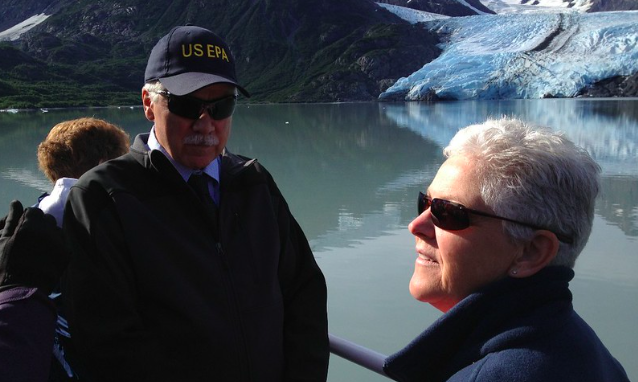The thought of Gina McCarthy as “climate change czar” for the incoming Biden Administration should send chills throughout the Northwest. It certainly does through Alaska, which has an economy already reeling from a loss of tourism and oil patch jobs this year due to one of China’s more notorious exports.
McCarthy was in charge of the Environmental Protection Agency when, in violation of federal law, the agency preemptively told Northern Dynasty to not bother applying for federal permits for the Pebble Mine project in Western Alaska.
Pebble was never going to happen, the EPA said. With the preemptive veto, McCarthy’s EPA stopped Pebble in its tracks because the U.S. Army Corps of Engineers could not take action on any permit application.
The Trump Administration with Scott Pruitt at the EPA, unwinded that ill-conceived ruling, and allowed Pebble the right to try to propose mitigation efforts that would be enough to get the copper and gold mine running on a limited basis. Last month, the U.S. Army Corps of Engineers dealt the final blow, but at least the environmental process had been followed, as laid out in law.
Trump reset a number of job-killing environmental policies when he took office in 2017, rolling back burdens on the energy, mining, and other resource sectors that were crushed by excessive regulation, among them the land grab known as the “Waters of the United States Rule,” which expanded federal control of waterways, and the Paris Accord climate pact. McCarthy took the credit for many of those job-killing policies.
In 2020, McCarthy was named CEO of the radical National Resources Defense Council. Now, with a whole host of Obama alumni returning to power, she’ll recycle into the highest levels of government, where she will be part of undoing Trump policies that opened the Coastal Plain of the Arctic National Wildlife Refuge for drilling.
How can Alaskans be so certain she has their state’s economic foundation in the crosshairs?
In August, the NRDC, along with the National Audubon Society, Center for Biological Diversity, Friends of the Earth, and Earthjustice, launched a lawsuit against the oil and gas drilling plan in ANWR.
But it goes back further than that. Under the Obama Administration, McCarthy visited Alaska, where she was gifted a jar of moose meat that she said “could gag a maggot,” and a tiny lapel pin from someone in North Pole, Alaska, that she said she tossed away. She hates everything Alaska stands for, and, for many Alaskans, the feelings are mutual.
Biden has also said he will nominate Tom Vilsack as his Secretary of Agriculture, another blow to the Northwest resource economy.
Vilsack, as the former Secretary of Agriculture, was instrumental in the destruction of the non-oil-based economy of Southeast Alaska, when he pushed through federal regulations that made timber harvest uneconomical in the 17-million-acre national forest.
“Today, I am outlining a series of actions by USDA and the Forest Service that will protect the old-growth forests of the Tongass while preserving forest jobs in Southeast Alaska,” said Secretary Vilsack said in 2013.
Today, there are effectively no logging jobs left in Southeast Alaska — none. In 30 years Southeast went from 4,200 jobs to zero, ever since the Tongass Timber Reform Act of 1990 allowed lawsuit after lawsuit to block responsible timber harvest.
On the other hand, the state of Rhode Island, which isn’t even as big as the Tongass National Forest, has 3,877 logging jobs.
President Trump had just begun to reverse the lockdown of the Tongass. This fall he announced a final Alaska Roadless Rule that exempts the Tongass National Forest from the 2001 provision that prohibited road construction and reconstruction, and select timber harvests.
It must be noted here that while timber jobs disappeared in Alaska over the past two decades, U.S. Forest Service jobs grew. There are hundreds of them in Southeast Alaska, including more than 75 alone in the Petersburg office, and more than 50 in the Sitka office. The only cutting of trees in the Tongass at this time are the personal-use Christmas trees around the shrinking settlements that dot the Alexander Archipelago.
Private sector timber jobs will never return to Alaska, even if the exemption to the Roadless Rule miraculously survives Biden’s environmental policies. No company will again make the investment in the Tongass because no company board of directors is reckless enough to count on the Forest Service to give them 25 years of timber, which would be needed to capitalize an operation.
That’s not the end of the troubles for Alaska under Biden. From John Kerry as Special Presidential Envoy for Climate we will hear speeches about the need to wean America from our resource economy, which in resource-rich states, is code language for “We’ll be keeping it all in the ground, so you may as well get used to it.”
